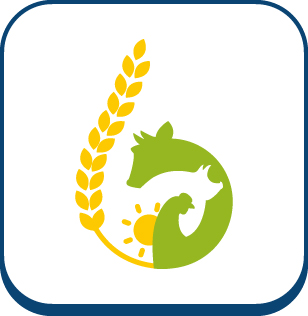Effect of the dietary net energy content on the spontaneous feed intake of growing‐finishing pigs housed individually
Ajouter à ma liste
Auteurs :
Quiniou N, Noblet J
The effect of dietary net energy (NE) content was investigated on 96 lean-type barrows, housed individually and fed ad libitum. Six NE levels (8.1, 8.7, 9.3, 9.9, 10.6 and 11.1 MJ/kg) were formulated, with inclusion of wheat bran and sunflower meal in the more diluted diets and inclusion of vegetable oil in the more concentrated diets. Ratios between digestible amino acids and NE and between minerals and NE were similar in all diets. Between 40 and 60 kg and also between 60 and 80 kg, the reduction of NE content was associated with an increased daily feed intake (DFI) that resulted in similar daily NE intake and similar average daily gain (ADG) and NE conversion ratio (NECR). In contrast, between 80 and 100 kg, no further increase in DFI was observed when NE content decreased below 8.7 MJ/kg, which resulted in a reduced ADG both between 80‐100 kg and over the whole experimental period. No significant difference was observed on carcass fatness but a lower dressing percentage was obtained in pigs fed low NE diets. Over the total period, the feed conversion ratio adjusted for similar body fatness and carcass yield was significantly affected by the treatment when expressed in digestible energy/kg but not when expressed as NE/kg. According to our results, the genetic selection against fat deposition has resulted in a decreased feed intake capacity during the late growing period rather than during the early growing period.
Fiche technique
Titre :
Effect of the dietary net energy content on the spontaneous feed intake of growing‐finishing pigs housed individually
Date sortie / parution :
2011
Référence :
Journées de la Recherche Porcine (FRA), vol. 43, 15-16 février 2011, Paris, p. 79-86








